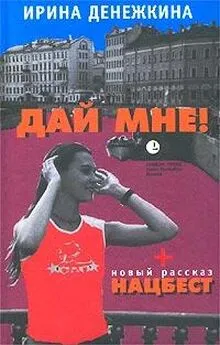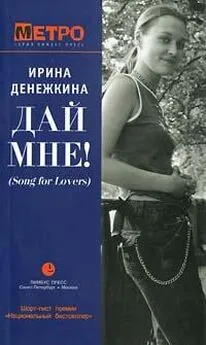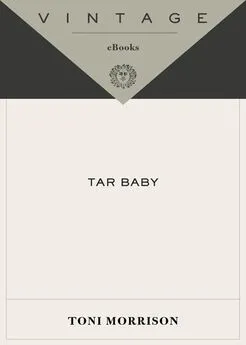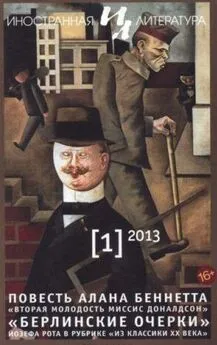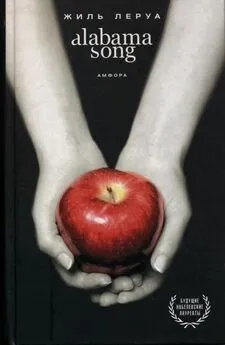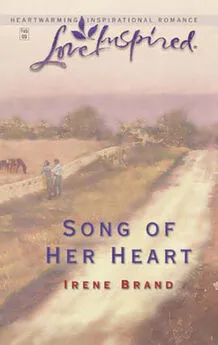Toni Morrison - Song of Solomon
- Название:Song of Solomon
- Автор:
- Жанр:
- Издательство:неизвестно
- Год:неизвестен
- ISBN:нет данных
- Рейтинг:
- Избранное:Добавить в избранное
-
Отзывы:
-
Ваша оценка:
Toni Morrison - Song of Solomon краткое содержание
Song of Solomon - читать онлайн бесплатно полную версию (весь текст целиком)
Интервал:
Закладка:
At the thirtieth second Milkman knew he had won. He moved his arm and opened his eyes. His gaze traveled to her strung-up, held-up arms.
Oh, she thought, when she saw his face, I had forgotten how beautiful he is.
Milkman sat up, swung his legs over the side of the bed, and stood.
“If you keep your hands just that way,” he said, “and then bring them down straight, straight and fast, you can drive that knife right smack in your cunt. Why don’t you do that? Then all your problems will be over.” He patted her cheek and turned away from her wide, dark, pleading, hollow eyes.
She stood that way for a long time, and it was an even longer time before anybody found her. They could have guessed where she was, though. If anybody missed her for a while they could guess. Even Ruth knew now. A week earlier she had learned from Freddie that Hagar had tried to kill Milkman six times in as many months. She stared at his golden teeth and said, “Hagar?” She hadn’t laid eyes on her in years; had been to Pilate’s house only once in her life—a very long time ago.
“Hagar?”
“Hagar. Shore Hagar.”
“Does Pilate know?”
“Course she do. Whip her every time, but it don’t do no good.”
Ruth was relieved. For a moment she imagined that Pilate, who had brought her son to life in the first place, was now bound to see him dead. But right after that moment of relief, she felt hurt because Milkman had not told her himself. Then she realized that he really didn’t tell her anything, and hadn’t for years. Her son had never been a person to her, a separate real person. He had always been a passion. Because she had been so desperate to lie with her husband and have another baby by him, the son she bore was first off a wished-for bond between herself and Macon, something to hold them together and reinstate their sex lives. Even before his birth he was a strong feeling—a feeling about the nasty greenish-gray powder Pilate had given her to be stirred into rain water and put into food. But Macon came out of his few days of sexual hypnosis in a rage and later when he discovered her pregnancy, tried to get her to abort. Then the baby became the nausea caused by the half ounce of castor oil Macon made her drink, then a hot pot recently emptied of scalding water on which she sat, then a soapy enema, a knitting needle (she inserted only the tip, squatting in the bathroom, crying, afraid of the man who paced outside the door), and finally, when he punched her stomach (she had been about to pick up his breakfast plate, when he looked at her stomach and punched it), she ran to Southside looking for Pilate. She had never walked through that part of town, but she knew the street Pilate lived on, though not the house. Pilate had no telephone and no number on her house. Ruth had asked some passer-by where Pilate lived and was directed to a lean brown house set back from the unpaved road. Pilate was sitting on a chair; Reba was cutting Pilate’s hair with a barber’s clippers. That was the first time she saw Hagar, who was four or five years old then. Chubby, with four long braids, two like horns over each ear, two like tails at the back of her neck. Pilate comforted Ruth, gave her a peach, which Ruth could not eat because the fuzz made her sick. She listened to what Ruth said and sent Reba to the store for a box of Argo cornstarch. She sprinkled a little of it into her hand and offered it to Ruth, who obediently took a lump and put it in her mouth. As soon as she tasted it, felt its crunchiness, she asked for more, and ate half a box before she left. (From then on she ate cornstarch, cracked ice, nuts, and once in a fit she put a few tiny pebbles of gravel in her mouth. “When you expectin, you have to eat what the baby craves,” Pilate said, “’less it come in the world hongry for what you denied it.” Ruth could not bite enough. Her teeth were on edge with the yearning. Like the impulse of a cat to claw, she searched for crunchy things, and when there was nothing, she would grind her teeth.)
Gnashing the cornstarch, Ruth let Pilate lead her into the bedroom, where the woman wrapped her in a homemade-on-the-spot girdle—tight in the crotch—and told her to keep it on until the fourth month and “don’t take no more mess off Macon and don’t ram another thing up in your womb.” She also told her not to worry. Macon wouldn’t bother her no more; she, Pilate, would see to it. (Years later Ruth learned that Pilate put a small doll on Macon’s chair in his office. A male doll with a small painted chicken bone stuck between its legs and a round red circle painted on its belly. Macon knocked it out of the chair and with a yardstick pushed it into the bathroom, where he doused it with alcohol and burned it. It took nine separate burnings before the fire got down to the straw and cotton ticking of its insides. But he must have remembered the round fire-red stomach, for he left Ruth alone after that.)
When the baby was born the day after she stood in the snow, with cloth roses at her feet and a man with blue wings above her head, she regarded him as a beautiful toy, a respite, a distraction, a physical pleasure as she nursed him—until Freddie (again Freddie) caught her at it; then he was no longer her velveteened toy. He became a plain on which, like the cowboys and Indians in the movies, she and her husband fought. Each one befuddled by the values of the other. Each one convinced of his own purity and outraged by the idiocy he saw in the other. She was the Indian, of course, and lost her land, her customs, her integrity to the cowboy and became a spread-eagled footstool resigned to her fate and holding fast to tiny irrelevant defiances.
But who was this son of hers? This tall man who had flesh on the outside and feelings on the inside that she knew nothing of, but somebody did, knew enough about him to want to kill him. Suddenly, the world opened up for her like one of her imperial tulips and revealed its evil yellow pistil. She had been husbanding her own misery, shaping it, making of it an art and a Way. Now she saw a larger, more malevolent world outside her own. Outside the fourposter bed where Doctor had bubbled and rotted (all but his beautiful hands, which were the only things his grandson had inherited). Outside her garden and the fishbowl where her goldfish died. She had thought it was all done. That she had won out over the castor oil, and the pot of steam that had puckered and burned her skin so she could not bear to urinate or sit with her daughters at the table where they cut and sewed. She had had the baby anyway, and although it did nothing to close the break between herself and Macon, there he was, her single triumph.
Now Freddie was telling her that it wasn’t done and over yet. Somebody was still trying to kill him. To deprive her of the one aggressive act brought to royal completion. And the person who was threatening his life was someone who shared Macon’s blood.
“That hurts,” she said aloud to Freddie as she folded into her pocket the rent money he handed her. “That hurts, you know.”
She climbed the porch steps and went into the kitchen. Without knowing what her foot was planning to do, she kicked the cabinet door with the worn lock under the sink. It answered her kick with a tiny whine before it sneaked open again. Ruth looked at it and kicked it closed once more. Again it whined and opened right back up.
“I want you closed,” she whispered. “Closed.”
The door stayed open.
“Closed. You hear me? Closed. Closed. Closed.” She was screaming by now.
Magdalene called Lena, hearing her shouts, ran down the stairs and into the kitchen. She found her mother staring at the sink and commanding it.
“Mother?” Lena was frightened. Ruth looked up at her. “What is it?”
Ruth looked up at her. “What is it?”
“I don’t know…. I thought I heard you saying something.”
“Get somebody to fix that door. I want it shut. Tight.”
Lena stared as Ruth hurried past and when she heard her mother running up the stairs, she put her fingers to her lips in disbelief. Ruth was sixty-two years old. Lena had no idea she could move that fast.
Her passions were narrow but deep. Long deprived of sex, long dependent on self-manipulation, she saw her son’s imminent death as the annihilation of the last occasion she had been made love to.
With the same determined tread that took her to the graveyard six or seven times a year, Ruth left the house and caught the number 26 bus and sat down right in back of the driver. She took her glasses off and wiped them on the hem of her skirt. She was serene and purposeful as always when death turned his attention to someone who belonged to her, as she was when death breathed in her father’s wispy hair and blew the strands about. She had the same calmness and efficiency with which she cared for the doctor, putting her hand on death’s chest and holding him back, denying him, keeping her father alive even past the point where he wanted to be alive, past pain on into disgust and horror at having to smell himself in his next breath. Past that until he was too sick to fight her efforts to keep him alive, lingering in absolute hatred of this woman who would not grant him peace, but kept her shining lightish eyes fixed on him like magnets holding him from the narrow earth he longed for.
Ruth wiped her glasses clean so she could see the street signs as they passed (“Eat cherries,” Pilate had told her, “and you won’t have to wear them little windows over your eyes”), her mind empty except for getting there—to Darling Street, where Pilate lived and where, she supposed, Hagar lived too. How had that chubby little girl weighed down with hair become a knife-wielding would-be killer out to get her son? Maybe Freddie lied. Maybe. She’d see.
When the banks disappeared and small shops in between rickety houses came into view, Ruth pulled the cord. She stepped down and walked toward the underpass that cut across Darling Street. It was a long walk and she was sweating by the time she got to Pilate’s house. The door was open, but nobody was inside. The house smelled fruity and she remembered how the peach had nauseated her the last time she was there. Here was the chair she had collapsed in. There the candlemaker’s rack, the pan where Pilate’s homemade soap hardened into a yellowish-brown slab. This house had been a haven then, and in spite of the cold anger she felt now, it still looked like an inn, a safe harbor. A flypaper roll entirely free of flies curled down from the ceiling not far from a sack that hung there too. Ruth looked into the bedroom and saw three little beds, and like Goldilocks, she walked over to the nearest one and sat down. There was no back door to this two-room house, just a big room where they lived and this bedroom. It had a cellar that one could enter only from the outside under a metal door that slanted away from the house and opened onto stone stairs.
Ruth sat still, letting the anger and determination jell. She wondered whose bed it was and lifted up the blanket and saw only mattress ticking. The same was true of the next bed, but not of the third. It had sheets, a pillow, and a pillow slip. That would be Hagar’s, she thought. The anger unjelled and flooded through her. She left the room, pressing her fury back so she would be able to wait and wait until somebody returned. Pacing the floor of the outer room, her elbows in the palms of her hands, she suddenly heard humming that seemed to be coming from the back of the house. Pilate, she thought. Pilate hummed and chewed things all the time. Ruth would ask her first if what Freddie said was true. She needed Pilate’s calm view, her honesty and equilibrium. Then she would know what to do. Whether to unfold her arms and let the rage out to do whatever it might, or…She tasted again the Argo cornstarch and felt the marvelous biting and crunching it allowed her. Now she merely ground her teeth as she stepped out to the porch and made her way around the side of the house through the nicotiana growing all wild and out of control.
Читать дальшеИнтервал:
Закладка:

